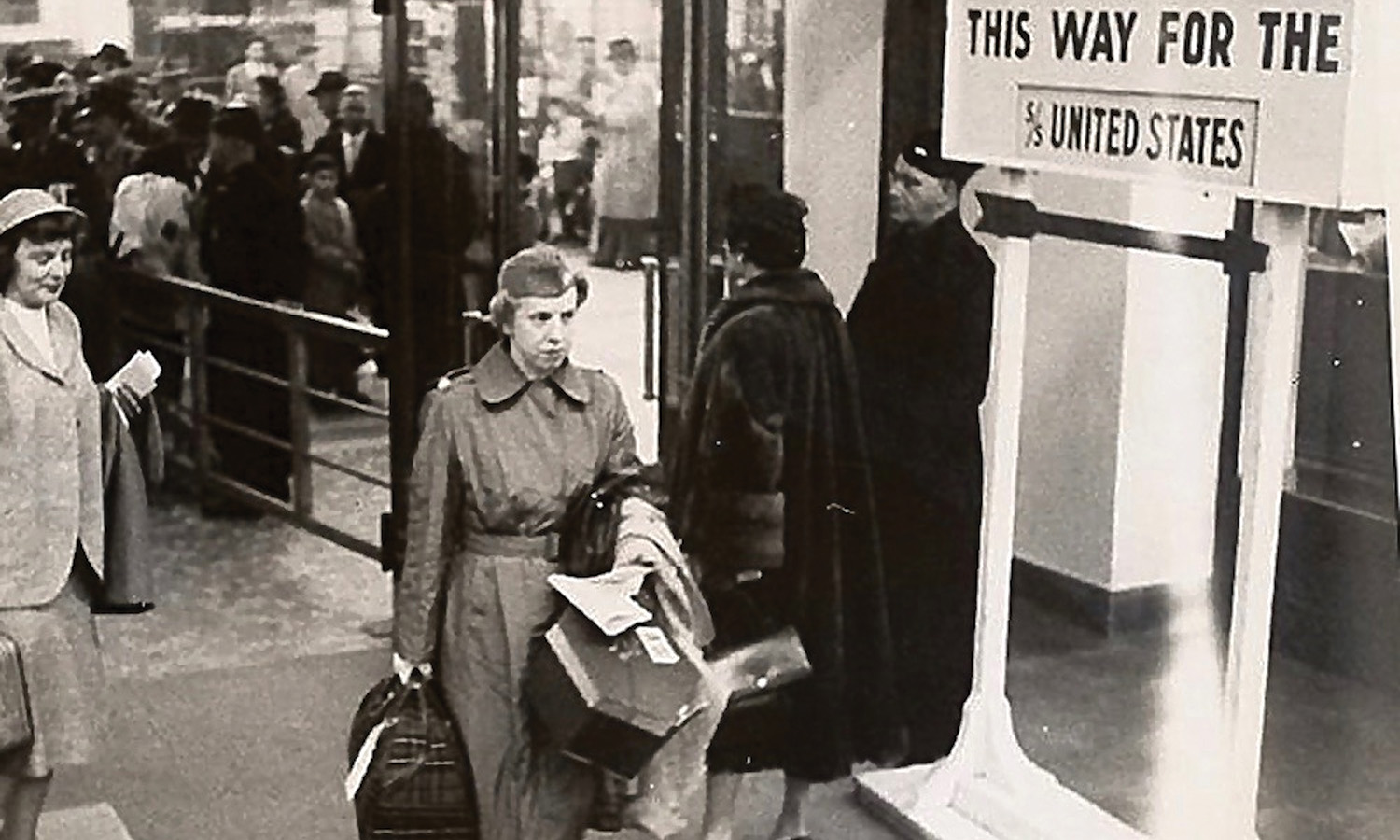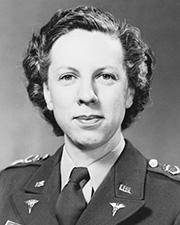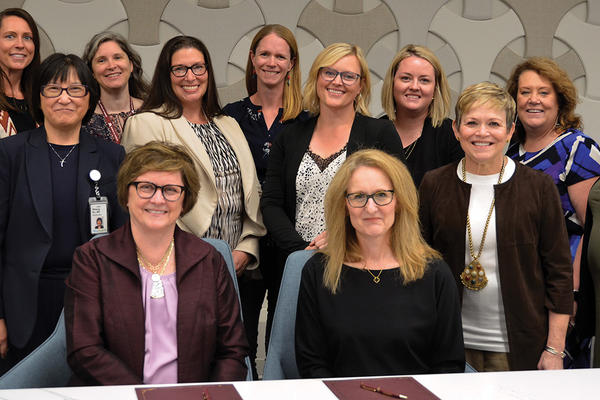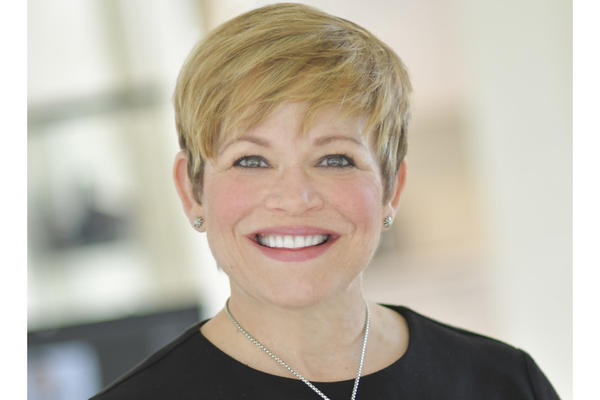Alum, Army nurse receives Congressional Gold Medal
Lt. Col. Hortense McKay, BSNE ’49, GN ’33, earns highest accolade from U.S. Congress for service in WWII
November 9, 2023
Andrew McIlree

Above: Lt. Col. Hortense McKay believed to be en route home, after the war. McKay served as an Army nurse in the Philippines during World War II.

The United States Congress awarded Lt. Col. Hortense McKay, BSNE ’49, GN ’33, a posthumous Congressional Gold Medal last March for her heroic service as a U.S. Army nurse during World War II.
McKay was one of the last soldiers to escape the Japanese invasion of the Philippines in 1942.
On a dark night 81 years earlier, as McKay climbed down the hatch of an American submarine that would slip her and a handful of nurses to safety, she must have been astounded at how far life had taken her from rural Minnesota. McKay would have been even more astounded to learn that for her sacrifice in grueling combat conditions, one day Congress would bestow on her its highest accolade for distinguished achievement. She is the only graduate of the School of Nursing to have received the Congressional Gold Medal.
The 1918 flu pandemic inspired in McKay a passion for nursing when, at 8 years old, she cared for her sick family. She earned a three-year degree from the University of Minnesota School of Nursing in 1933 and joined the Army Nurse Corps in 1939.
By early 1941 she was assigned to an Army hospital in the Philippines. This tour of duty offered nurses ample opportunities to explore the countryside or enjoy dancing in Manila. That changed the day after the Pearl Harbor attack, when the base McKay was on was attacked for three hours.
Immediately, the wounded and dying arrived at her hospital. “We nurses weren’t prepared for such casualties. Hundreds and hundreds of them,” McKay recalled in an interview for the book Jungle Angel: Bataan Remembered. The Army had not trained them for mass casualty incidents. McKay continued: “I remember seeing one soldier die in bed, his bleeding so profuse that it soaked through the mattress. Everywhere around me were lives to be saved and so few of us to save them.”
McKay promised herself during this harrowing ordeal that, if she survived, she would improve education for Army nurses. McKay later returned to the University of Minnesota to earn a Bachelor’s of Science in Nursing Education summa cum laude in fulfillment of that promise.
McKay moved to a field hospital in the jungle of the Bataan Peninsula. Set in the open air, the hospital was hidden underneath the forest canopy. “Nurses were on duty at first light and worked until it became too dark to see,” wrote historian Michele Manning. The hospital, prepared for 1,000 patients, soon cared for 6,000. In addition to the constant threat of attack, the nurses had to be cautious of venomous snakes and spiders, mosquitoes with malaria and dengue, and unsanitary conditions from overcrowding. “Most soiled bandages were washed and used over again,” recalled McKay.
Everyone began to starve, which was made worse by severe dysentery. McKay, who weighed 115 pounds when the war started, soon dropped to 88 pounds. She remembered: “I was in charge of feeding 90 people from a 12 quart bucket” with a stew consisting of horsemeat, monkey, fish, rice and weeds–whatever could be found.
Eventually, nurses were ordered to abandon the hospital. The sick and wounded were left behind to become prisoners of war. “I would have to live with this tragedy for the rest of my life,” McKay wrote.
After her rescue, McKay could have returned to the United States. However, she chose to serve the entire war in the Pacific theater. She remained in the Army as a senior leader and nurse educator until 1960, retiring as a Lieutenant Colonel. Her focus on nursing education would improve care delivery for future conflicts.
“As a nurse, I had learned to think beyond the blood, the maggots, the high fevers and the deep open wounds, to focus on the individual, the human being in his hours of trial,” she said, concluding that for nurses, “rewards come to us in quiet and mysterious ways.” McKay died in 1988.


